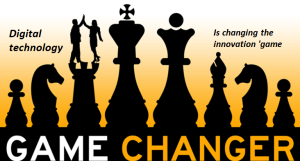 Technology is radically altering our need for innovation. We see increasingly innovation is feeding off the “digital response rate”
Technology is radically altering our need for innovation. We see increasingly innovation is feeding off the “digital response rate”
Connecting technology and innovation is altering how we should re-access organizations ability to build out. We are in the middle of a technological-led industrial revolution It is becoming highly dynamic.
****I decided to revise this post as I originally got caught up in “conflation”. Two ideas merging as one and it simply lost the insights of each, simply attempting to fuse different thoughts into one entity. It honestly did not work and I struggled with what to do. By splitting them up they become separate reads and more digestible and hopefully of better value. I have to admit this is not the first time I get caught in this (or I expect the last!) and I apologize to you, as the reader *****
So here I outline a 5S framework to trigger some opening thoughts on breaking down technology design complexity. The other post, now over on my other site, deals with the growth of “apps” in IIoT “Great apps will deliver the future business value in IIoT” and is predicting a changing future based on some recent takeover announcements.
So getting that embarrassment behind me lets go back to the 5S idea.
Arriving at a designed outcome is getting complicated. Developers get caught up in the details, rightly so, to deliver on a connected world but you must always ask the “what for?”
The more I was thinking I was trying to cut through all this “unnecessary fog” as a non-techie so I started to build my 5S idea. Let me share it
Continue reading “My 5 S for future Innovation: Smart, Stacks, Scale, Storage, and Software”




